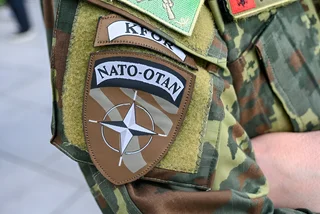The stream of illegal migrants heading for Germany across the Czech Republic cannot be halted without the introduction of permanent German checks at the border with Czechia, German police trade union (DPolG) chief Heiko Teggatz told ČTK Monday.
The ideal solution would be to cooperate with Prague on introducing similar checks to what already exists at its border with Slovakia, Teggatz added.
Teggatz said in an interview with the German daily Bild that the number of cases of illegal migrants entering Germany without valid documents is on the rise; data suggests those numbers are the highest since 2015 when an unprecedented wave of migrants and refugees entered Germany mainly from Syria and Iraq, but also from Africa and Afghanistan.
The DPolG states that the German police registered 2,000 cases of illegal border crossing from the Czech Republic to Germany in June, which was a 140-percent rise year-on-year, while 3,000 such cases were monitored at the Czech-Saxon border in August alone.
Teggatz told ČTK that people-smugglers had created new routes from the Balkans via Slovakia and the Czech Republic after Austria tightened the border checks with Hungary.
The change of the route via Slovakia and the Czech Republic is apparent, he added.
German Interior Minister Nancy Faeser should immediately order stationary checks at the border with the Czech Republic, which Germany has long carried out at its Austrian border due to the migrant crisis, Teggatz said.
"This stream of migrants could be halted by regular checks at the Czech-German border and at best if the Czech Republic also introduced checks at the Czech-Slovak border," he said.
Asked whether the Czech Republic could take some measures to prevent checks at the German border, Teggatz said it would be hard.
"This would be hard to achieve as I know the border between the Czech Republic and Slovakia leads through forests," he said, adding that not even reinforced deployment of the Czech police along the Slovak border would probably halt the migrant stream to Germany.
This is why Teggatz envisions cooperation between Berlin and Prague, which means not only checks at the German-Czech border, but also at the Czech-Slovak border, as a solution.
The trade union chief called the long cooperation between the German and Czech police excellent.
"I can speak out of my own experience as I was serving at the German-Czech border for five years at the beginning of the 1990s," he recalled.












 Reading time: 2 minutes
Reading time: 2 minutes 





























